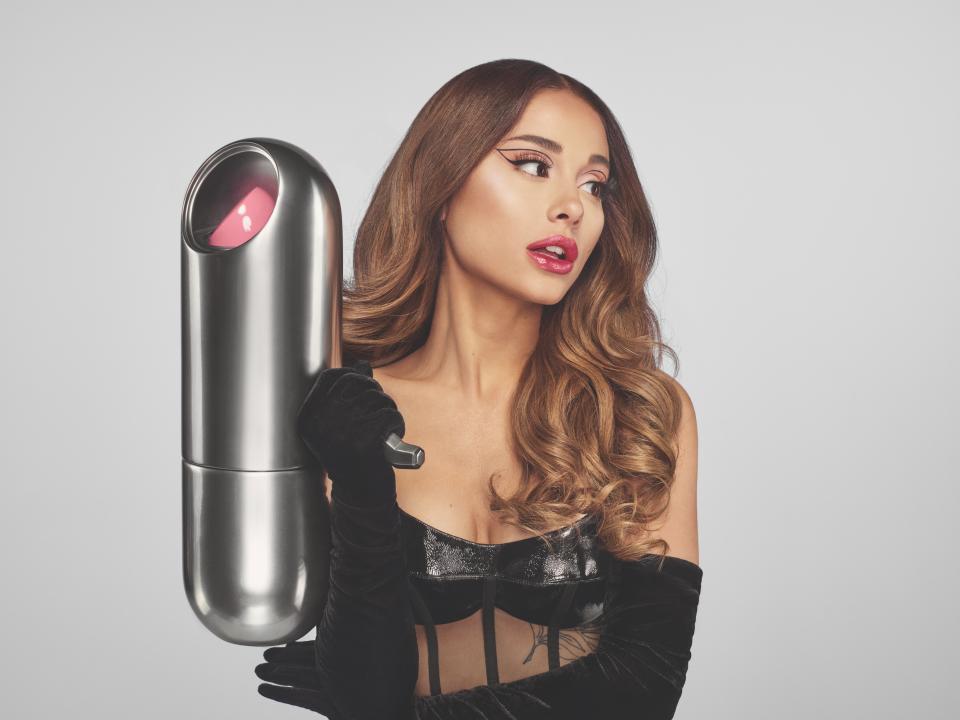Morphe Wants to Become Product-first, Not Influencer-led

Forma Brands’ plan for Morphe is far from influencer-first as it emerges from Chapter 11 bankruptcy proceedings with new owners.
“The evolution really is now focused on what I call a product first beauty brand, not an influencer first beauty brand,” said Forma Brands president Simon Cowell in an interview just after news broke that Morphe’s parent company Forma had been acquired out of bankruptcy by lenders Jefferies Finance, funds managed by Cerberus Capital Management, and FB Intermediate Holdings, as well as &vest, a consumer brand investment and operational platform.
More from WWD
As part of the changes, Cliff Moskowitz, an operating partner at &vest, has joined Forma Brands as chief executive officer. He previously served as the CEO of Outdoor Voices and succeeds former Too Faced executive Eric Hohl, who is no longer associated with the company.
The main reason that Morphe is no longer planning to tie itself to one or two influencers is its previous reliance on Jeffree Star and James Charles, which impacted the business when allegations of inappropriate behavior by both of them in separate instances emerged. According to Cowell, the company no longer has any relationship with either Star or Charles. This, combined with a COVID-19-induced industrywide slide in color cosmetics sales and supply chain issues eventually led to Forma filing for Chapter 11 in January.
Going forward, Morphe will still tap into the influencer network, particularly TikTok, but in a much more diversified way and the core focus will be on the products themselves, according to the trio of executives.
Of the changes, Doug Jacob, cofounder of &vest, said: “From the outside in these high-level influencers that wanted to partner with Morphe was because Morphe was actually a special brand itself. But what ended up happening is we became the influencer as opposed to the brand developing what its core values are, which is why we’re stepping back. We’re still leveraged like every beauty brand with partners, we have fantastic partners in the celebrity space, but this brand itself deserves to stand on its own just like other great brands in the space.”
That’s not the only change. While in an attempt to revive the company, it launched and acquired several brands, the core focus will now be three: Morphe, Morphe 2 and Born Dreamer. In contrast to its new product first, influencer second strategy for Morphe, Born Dreamer is a fragrance collaboration with TikTok star Charli D’Amelio, who has 150.5 million followers on the platform.
Other brands include Lipstick Queen, Jaclyn Cosmetics with influencer Jaclyn Hill, Such Good Everything and Bad Habit. The latter was previously associated with influencer Emma Chamberlain.

“The previous ownership had a multibrand strategy. We’re really going to focus on our core,” Jacob explained. “It doesn’t mean that we won’t launch or incubate other brands, but I think we’re going to do it in a more calculated fashion to make sure that our home base is really thriving.”
As for more celebrity-backed brands in addition to Born Dreamer, he said: “I don’t think we’ll say never, but I think again going back to focusing on our core first and foremost.”
It previously launched color cosmetics line R.e.m. Beauty in partnership with Ariana Grande. Forma was R.e.m. Beauty’s licensee, and the brand has now taken its operations in-house. R.e.m. has since entered an agreement to buy inventory and intellectual property from Forma for $15 million, per a transition services agreement dated Friday, and a purchase agreement filed Jan. 27.

In Feburary, R.e.m. named Michelle Shigemasa as CEO. Shigemasa previously served as the global CEO of Murad, and prior to that, spent 13 years at Smashbox.
On more detailed goals for Morphe, after closing all its stores in the U.S., the distribution focus will be on e-commerce and retailer partners including Ulta Beauty. It still has 11 stores internationally, which will remain open while the brand continues its push in the EMEA region.
Product-wise there will an emphasis on eye, face and brushes and its makeup range, in general, is expected to be more toned down than in the past.
“In terms of the makeup look, it’s changed,” Cowell said. “It’s changed sort of globally in terms of consumer use and consumer preferences and the brand has changed in response to that so while we are still I’ll call it a bold brand in terms of what we stand for, the look from 2016 through 2020 has evolved and we’ve evolved with that.”
The plan for Morphe 2, which was launched as a more natural brand targeted at a younger audience, is to grow it through the mass channel, having launched at Target.
When asked what other plans it has to make Morphe relevant again, Moskowitz responded: “I don’t think it was necessarily ever irrelevant. It is still a $200 million plus business and the number two or three brand at one of the best retailers in the world….It deserves a lot of our time and attention, resources and investment and it might not have gotten that internally maybe as much as it deserved over the last three or four years.”
The hope for the company as a whole is to quickly get sales north of $300 million. For context, when General Atlantic acquired a 60 percent stake in Morphe in 2019, Morphe was said to be doing about $500 million in net sales, with about $130 million in earnings before interest, taxes, depreciation and amortization and the deal valued the company at $2.2 billion.
Best of WWD

